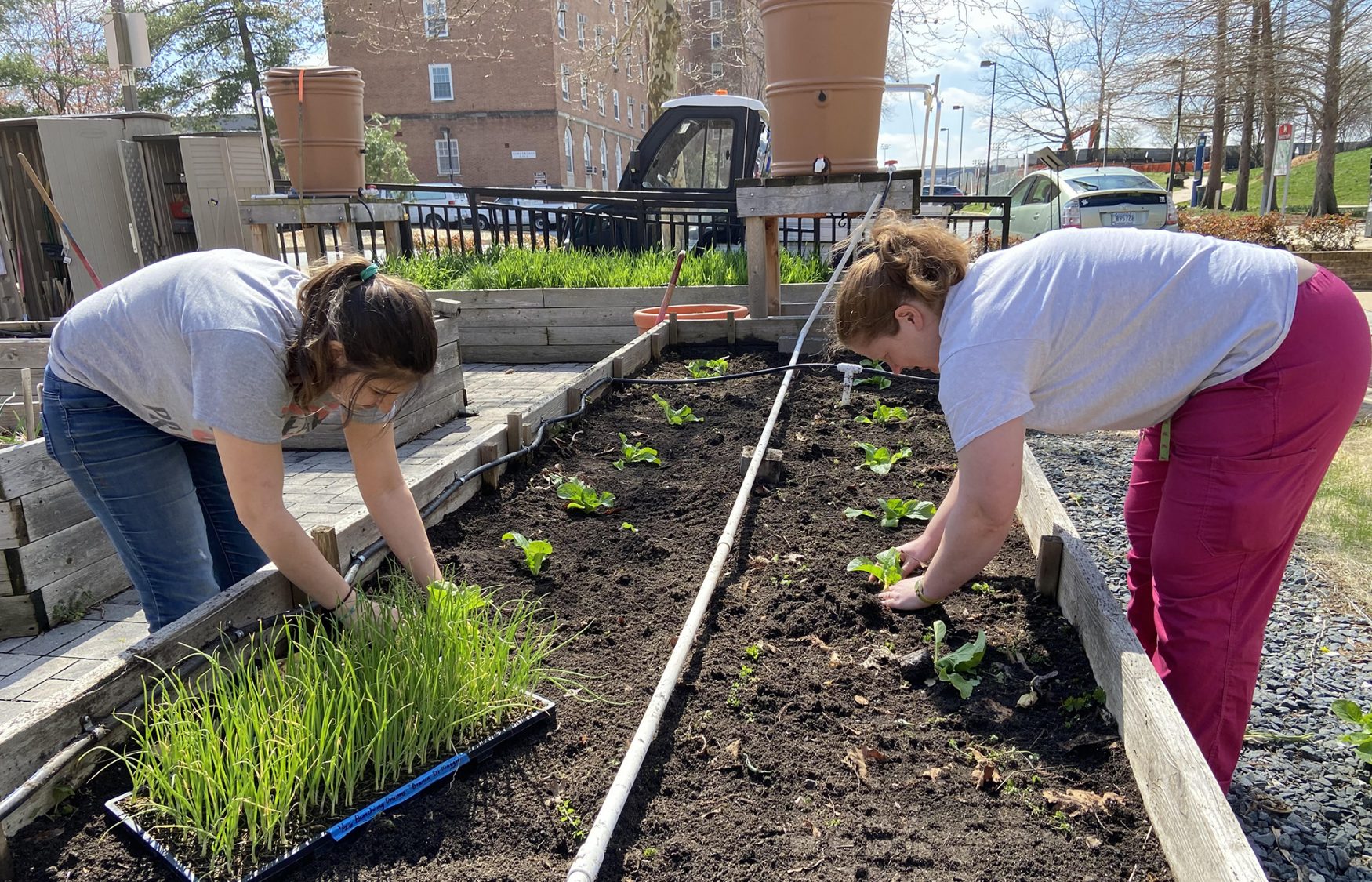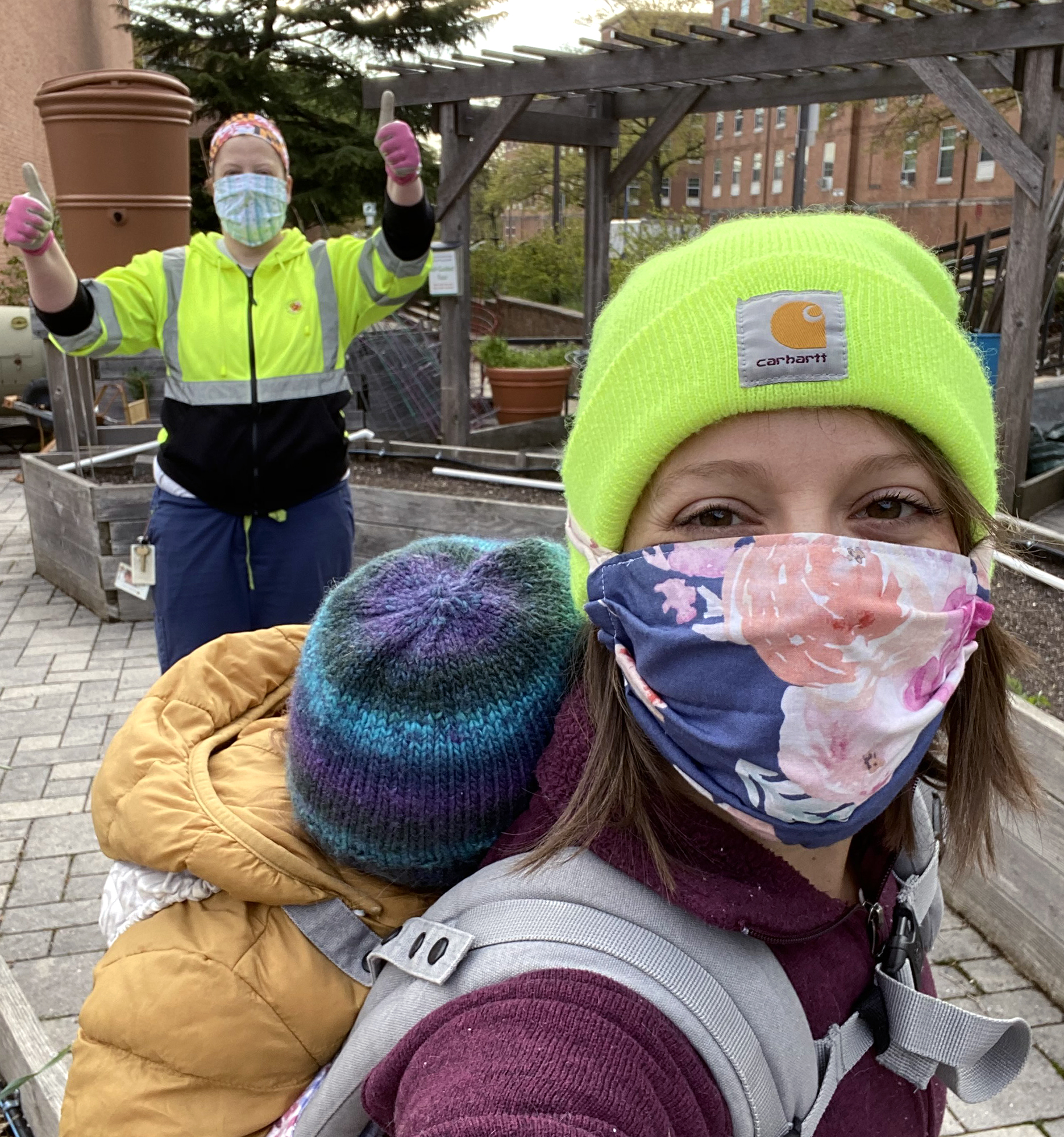While life may have paused at the University of Maryland, plants at the Community Learning Garden continue to grow — and they’re now taking on a larger purpose.
The Community Learning Garden, located between Eppley Recreation Center and the public health school, is a space that relies on volunteer efforts and is used to educate the community on growing its own food.
Before COVID-19, volunteers at the garden were able to take home a portion of the harvested produce, and extra would go to the university’s Campus Pantry. Now, the one and only destination is the Campus Pantry — an organization dedicated to eliminating food insecurity on campus.
“We feel fortunate that we can provide things that are really fresh and nutritious, and things that are kind of cool and different that you maybe wouldn’t find at the Pantry otherwise,” said Meredith Epstein, a senior lecturer and adviser with Maryland’s Institute of Applied Agriculture, who is among other essential employees still able to work in the garden.
[Read more: College Park Council deliberates how to best serve local businesses amid COVID-19 ]
Meredith Epstein)
The Campus Pantry works to fight against food insecurity for students, faculty and staff year-round. In a typical week it serves 70 people — a number that has now increased to 370 as of last week, according to Allison Tjaden, assistant director of new initiatives for Dining Services.
“Having several of those fresh items harvested that morning, is a really wonderful addition to those bags, and I know all of the folks who are coming to access the pantry really appreciate it,” Tjaden said.
Vegetables and herbs, such as hot peppers and purple snow peas, are provided to the Campus Pantry in order to make cooking more interesting for those in need. The grocery bags packaged by the pantry also include staple items such as canned goods and cereal.
“Especially for families that have immigrants or just have cultural backgrounds in other countries, maybe it could be offering those things that they can’t access otherwise, that would make their food more familiar and like from home,” Epstein said.
Due to COVID-19, extra food safety precautions have been put in place, according to Meg Smolinski, who also works in the garden and is an outreach coordinator with the university’s Arboretum & Botanical Gardens.
“We’re introducing a lot more hand washing and wearing face masks when we’re both harvesting and packaging the food,” she said. “There’s just a lot more sanitation that’s going on.”
[Read more: Coronavirus updates: The Diamondback’s ongoing coverage ]
The garden will continue to donate to the Campus Pantry throughout the summer.
“We plan to plan out the rest of the garden as soon as we are able to till the rest of the plots, based on time and weather,” Smolinski said. “And then the rest of it will be planted out so that we can continue our donations to the Campus Pantry.”
The Community Learning Garden Club still meets remotely to help plan and improve the garden. The club was awarded a Pepsi grant for their spring workshop activities, but now they hope to use that money in the fall if the campus is open.
Ruby Dessiatoun, a graduate student and worker, said other students miss being outside and working there, especially as finals approach.
“One of the beautiful things about this garden is just leaving your room when you need to,” she said.
Despite future uncertainty, Epstein hopes their efforts will raise more awareness about the garden, the pantry and local food production.
“The garden will continue to be there and be a resource for people who want to learn and need fresh food,” Epstein said.




